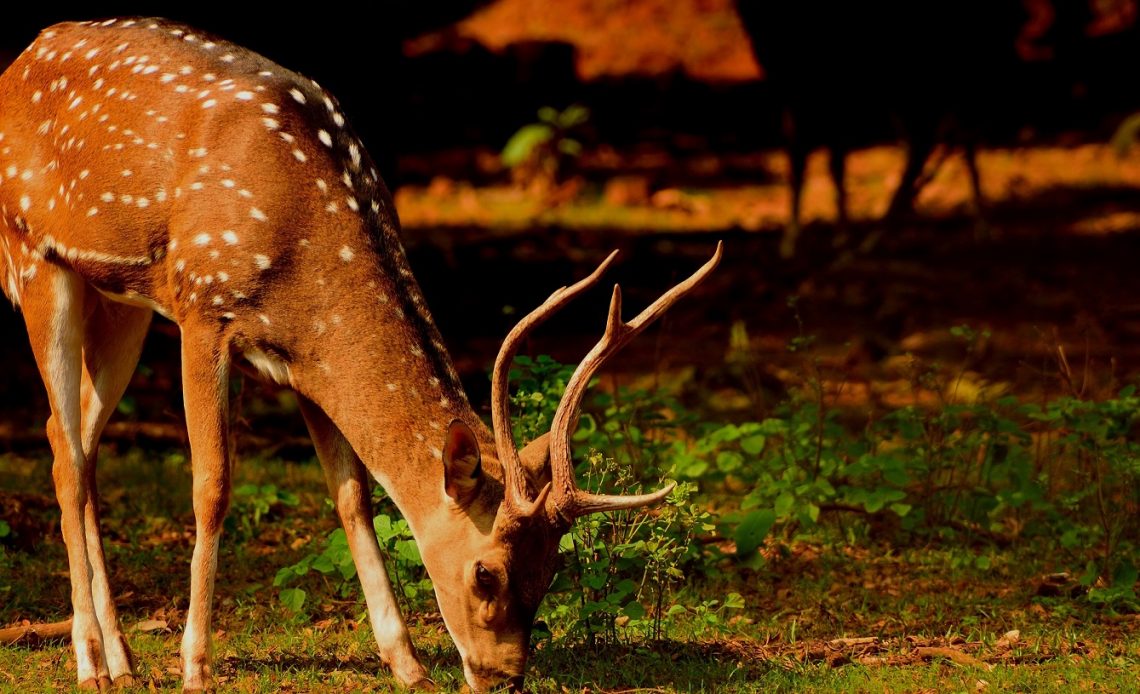

We’re here to help! Wild Yards is a completely free website that is 100% dedicated to helping you create a wildlife-friendly, sustainable yard. Read more
WildYards is reader-supported. When you buy a product through a link on our site, we may earn a comission. Every product is independently selected by our (obsessive) editors and our reviews are unbiased and objective. Read more about our mission or our privacy policy.
Walnuts taste great any time of year – however, they can be difficult to grow and maintain. So, for those of us who have walnut trees, it is only natural for us to want to do our utmost to protect them and keep them growing as well as possible. However, we are not the only animals on earth to enjoy walnuts – do deer eat walnuts, for example?
Walnuts are usually not a snack of choice for the average deer. Their shells are hard to break into, and they do not necessarily smell enticing. That being said, when food is scarce, you may indeed find deer eating your walnuts – however, this is a fairly rare occurrence.
Are walnuts bad for deer?
Evidence on whether or not walnuts are good or bad for deer to eat is, sadly, fairly scarce. This is likely because they are rarely seen eating them! However, when it comes to feeding deer peanuts and other types of treats, it makes sense to avoid giving them anything candied, salted, or coated. Peanuts, in fact, aren’t as good for your local deer as you might think!
That said, if you leave walnuts out for your deer, you’re unlikely to get much interest. In fact, it’s more likely that smaller mammals will steal these treats to store away for the winter.
There’s a common misconception that walnut plants will deter deer from entering yards and gardens. Again, evidence for this is scant – meaning it is likely more beneficial to use a natural spray (made with predator urine, for example) – to keep these wild visitors at bay.
That said, evidence regarding coyote urine and deer deterrence, in particular, is largely anecdotal. Therefore, it’s worth doing some research!
What kind of nuts do deer eat?
Some of the deer’s favorite nuts include acorns, hickory nuts, and beechnuts. Acorns, in particular, are quite common to come across in forests – oak trees are deer favorites for a reason – and given that humans tend to avoid foraging for them, deer will safely snack on them without fear of taking chase.
Nuts are largely packed full of healthy fats and protein – great for deer trying to bulk up for the winter or gain some energy to stay ahead of local predators. They will particularly try to eat them in fall, and even in the winter if they can – a deer’s summer diet is likely to vary, however.
What kind of animals eats walnuts?
Walnuts and their plants appeal to any creatures that are likely to forage and even store for the cold months ahead – therefore, squirrels are prime culprits for stealing the odd nut, whether munching on the go or storing in their winter keeps. However, animals as diverse as turkeys, raccoons, and skunks have no problem waiting for walnuts to drop – though you may even find wild bears enjoy plucking walnuts from trees.
It’s often difficult to try and protect walnut trees and plants from animals simply because they are so appealing to a variety of species. While they are often too crunchy and awkward for deer, there are rodents galore that may be depleting your reserves.
Therefore, it makes prudent sense to set up netting over your trees and/or plants in an effort to deter creatures from your crops. This is especially worthwhile if you are otherwise trying to welcome wild animals to your yard, not deter them.
What animals eat green walnuts?
Again, some of the most common animals to eat green walnuts include squirrels, birds, raccoons, and bears. They will either take them directly out of the tree or will wait for them to fall. Bears even commonly push themselves against trees, rocking them back and forth for a good scratch, but also to get certain foods to fall out, and walnuts are definitely one of them.
But – again – even green walnuts will escape your average deer’s attention! Therefore, if you are setting up a feeding plot for these wild visitors – and actually want to bring deer to your garden – it’s a better move to scatter acorns, citrus fruits, and even twigs and weed cuttings.
Should I grow walnuts to deter deer?
Growing walnuts won’t deter deer, but you may wish to grow walnut plants and other deer-resistant growths to make your yard less interesting to roaming creatures. For example, did you know that deer tend to avoid long grass – and that unless they are extremely hungry, deer won’t eat ferns?
If you make sure your garden is replete with plants and trees that deer are unlikely to feast from, you stand a better chance of keeping them away. Of course, setting up a firm perimeter around your yard is also a good idea!
